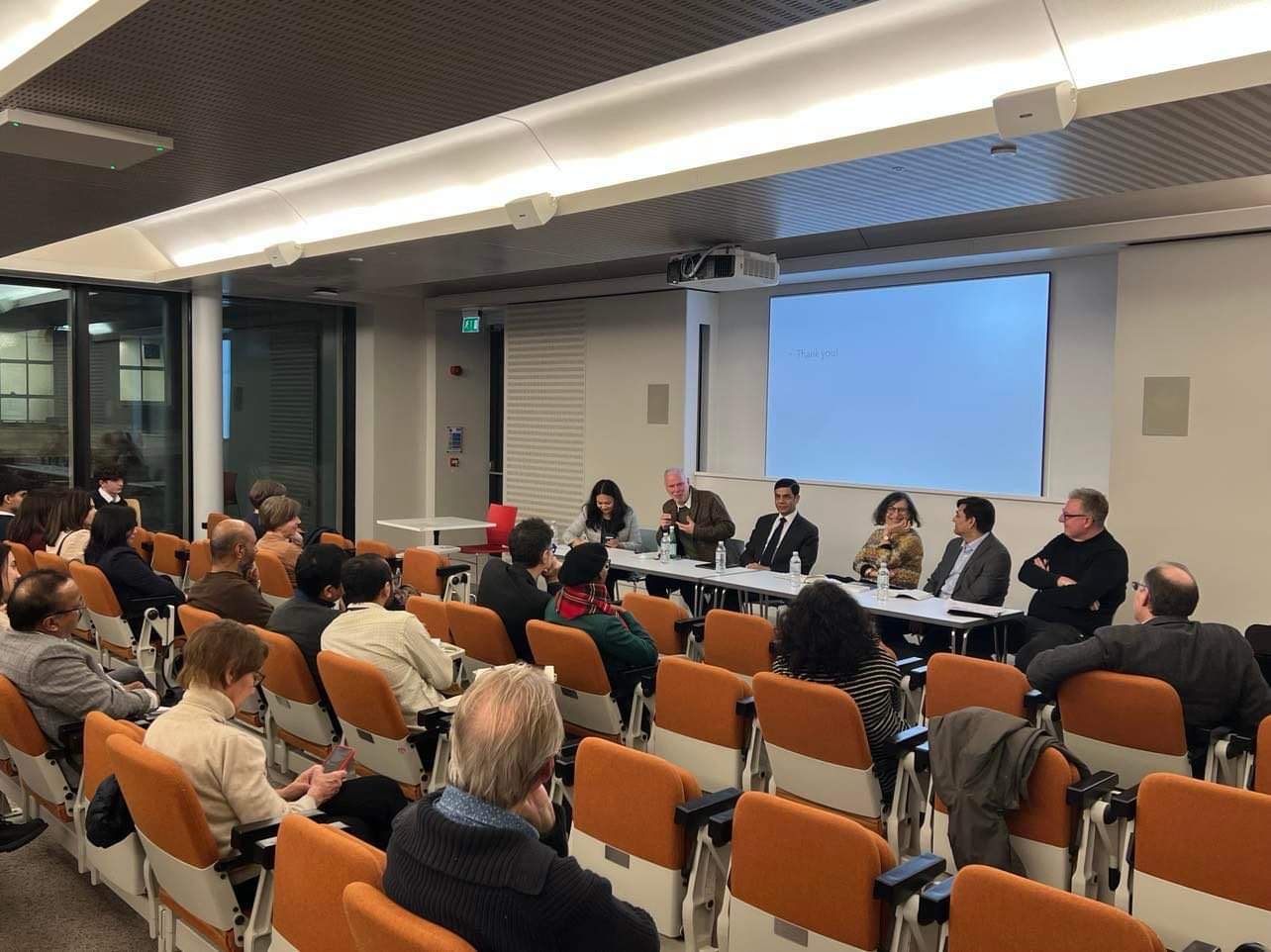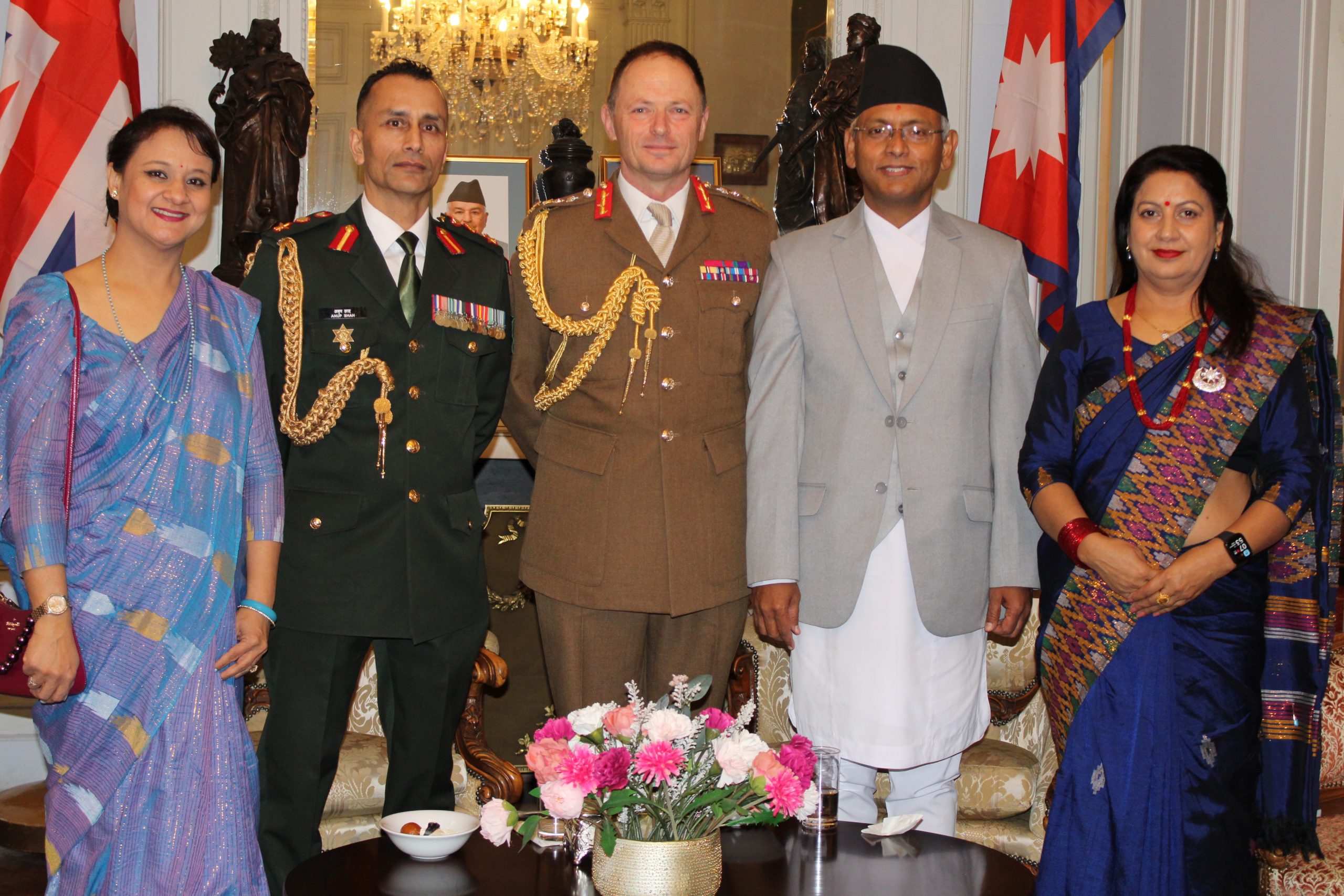Scholars discuss Conflict, Education and Peace in Nepal during a book launch

London – A book entitled ‘Conflict, Education and Peace in Nepal: Rebuilding Education for Peace and Development’ has been launched amidst a talk programme at the University College London on Tuesday.
Author of the book, Prof Dr Tejendra Pherali at the Institute of Education, University College London, said that in the book, he has attempted to analyse the impact of the decade-long Maoist insurgency (1996-2006) in Nepal on education sector.
“Many marginalised groups were not able to benefit from the education and narrative of grievances fuelled the ideology of conflict,” said Prof Pherali, adding that promotion of one language and one culture led to the resistance against the hegemony of dominant Nepali language and high caste people.
Drawing upon the example of attacks on educational institutions by Boko Haram militants in Nigeria, Prof Pherali said that teachers have enormous responsibility of child protection in conflict settings. “Where risks are high, temporary closure of schools should be considered. Like in the Covid, alternative education provision is better than continuation of mass education,” he said.
In Nepal, schools served as significant spaces of political-socialisation for the Maoists while students and teachers were victims as well as well-informed active agents of the movement.
The Maoist insurgency and subsequent Madhes uprisings have ruptured the hill-high caste-male dominated social/political system- the voices of the historically maginalised are stronger, said Dr Pherali adding, “equity and justice must be at the centre of educational provisions – yet, in post conflict Nepal, education system largely operates as business as usual.” He called for a systemic change in education in Nepal to ensure sustainable peace and justice.
Commeting upon the book, Dr Uma Pradhan, a faculty member at the Institute of Education at the University College London said that the book has brought broader socio political context of Nepal in understanding the education study. During Maoist conflict, schools were major targets of violence. “State schools were seen as symbol of the state while private schools were seen as class enemies by Maoists” said Dr Pradhan adding, “There were extortions and pressure to close down schools. There are several examples in the book how students were victims and also chose to participate as Maoist cadres. War provided some sort of opportunity to these children.”
Professor of Nepal and Himalayan Studies at SOAS, London, Prof Michael Hutt recalled that his Department organised a conference on Nepal in November 2001 to understand the Maoist rebellion. “The rebellion was the product of a particular moment in Nepali history amid frustration among people of marginal communities. Chances of another rebellion do not look likely now though marginalisation of these communities is still there,” he added.
Professor Mario Novelli from University of Sussex said that the book was part personal and part intellectual in nature. “Challenges in Nepal are also challenges in different countries of the world. Conflict doesn’t begin and end within the geography of a particular country. In Sri Lanka, the solution was military one but that would add inequality,” he added.
Ambassador of Nepal to the UK, Gyan Chandra Acharya, said that in his book, Prof Pherali not only looks into the history of conflict, but also looks into the dimension of education and conflict and causes of conflict. Saying that human development and economic progress are mutually reinforcing., Ambassador Acharya said that Nepal is committed to right to education. “We have made progress in terms of net enrolment and gender partiy index but there are huge challenges at secondary, tertiary and inter provincial parity as well as in providing support to ethnic communities,” said Ambassador Acharya adding,” Nepal has made very good progress during post conflict period over the last decade on several fronts. We have come this far thanks to the participation and support of all stakeholders including international community. Our aim is to promote peaceful and just society which can take everybody on board in terms of prosperity.”
Professor Brad Blitz, Head of Department, Department of Education, Practice and Society, delivered welcome remarks on behalf of the UCL while co-director of the Centre for Education and International Development, UCL, Professor Elaine Unterhalter, chaired the interaction.
The interaction was followed by Q and A and Nepali supper.



















Facebook Comments